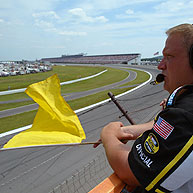 Tucked away in a WKRN.com story on a Nashville councilman's immigration/employment proposal (which is unique in that it purports to punish employers directly, as opposed to exclusively punishing employees), is a reference to "people of foreign race."
Tucked away in a WKRN.com story on a Nashville councilman's immigration/employment proposal (which is unique in that it purports to punish employers directly, as opposed to exclusively punishing employees), is a reference to "people of foreign race."Unless "foreign race" refers to the Tour de France or Formula 1 at Monte Carlo, this slip of either the WKRN reporter or the politician quoted in the story reveals a racial undercurrent in a debate that is supposedly race-neutral.
Here is an excerpt of the original WKRN story:
One Metro councilman is angry that illegal immigrants are working on Metro projects. Now, he is taking action. Councilman J.B. Loring is behind a bill that would penalize contractors from hiring undocumented workers. He said his office is flooded with complaints of undocumented workers on Metro jobs. Loring said about a third of the calls that he has received are from people of foreign race. "I think they're fed up with the situation," he said.
The comment is made in the context of the councilman's attempt to preemptively defend the "fed up" attitude as one that is not race-based. But the "foreign race" term (whoever used it) is evidence of two things. First, at least some of the emotion in the immigration debate is race-conscious. Second, a line is being drawn between a "domestic" race and a "foreign" race - implying that different racial groups have unequal claims to being American.
Note the parallels between the the tone in the WKRN story and the debate over California's infamous Proposition 187:
The public statements of the drafters of Proposition 187 left the unmistakable imprint of racial animus. One initiative leader conjured up disturbing imagery of lynching, a device historically used to terrorize African Americans in the United States: '[y]ou are the posse ... and [Proposition 187] is the rope.' Harold Ezell, a high-ranking INS official during the Reagan presidency who was loathed by Latino activists because of his derogatory comments about illegal aliens, attributed Proposition 187's widespread support to the fact that '[t]he people are tired of watching their state run wild and become a third world country.' Barbara Kiley, mayor of an Orange County town, reportedly described the children of undocumented immigrants as 'those little f--kers.' Her husband and the initiative campaign's political consultant, Richard Kiley, observed that the public protests of Proposition 187 were counterproductive because '[o]n TV there was nothing but Mexican flags and brown faces.' Barbara Coe, a Proposition 187 supporter, expressed fear of the 'militant arm of the pro-illegal activists, who have vowed to take over first California, then the Western states and then the rest of the nation.'
-Kevin R. Johnson, Race, The Immigration Laws, And Domestic Race Relations: a "Magic Mirror" into the Heart of Darkness, 73 Indiana Law Journal 1111-1159, 1112-1148
Considering Nashville's historic struggles for a favorable racial climate, its growing national reputation as a destination for relocating businesses, and the detrimental effects of racial divisiveness, let's raise the yellow flag in the local immigration debate and recognize the hazard on the track. Nashvillians and their leaders must redirect the immigration debate toward the city's values of unity, hospitality and empathy, and away from divisiveness, anger and animus. Otherwise, the concept of a "foreign race" will flourish, and the city is headed for a spectacular crash.

Focus: Language, Justice

No comments:
Post a Comment